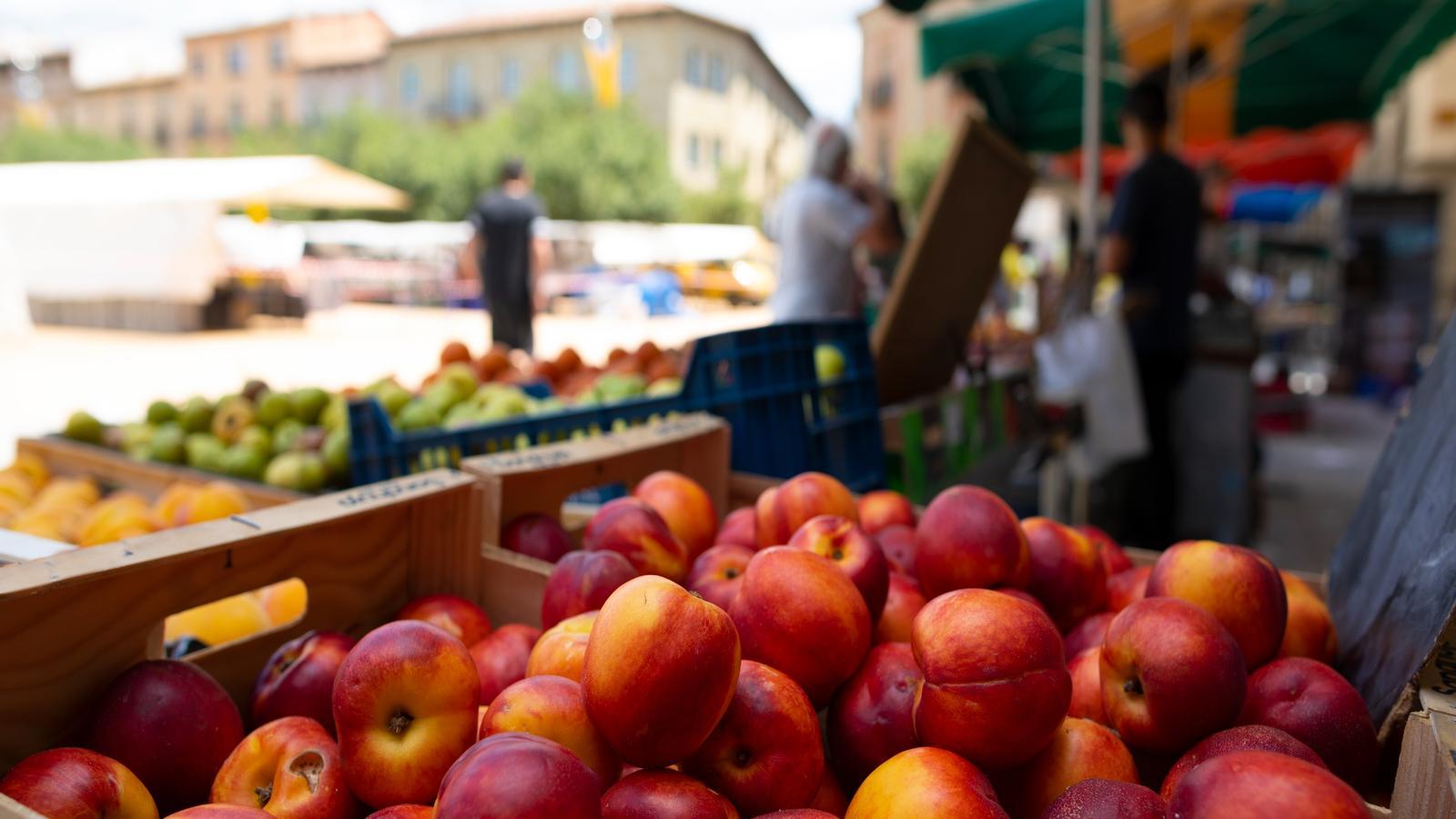The Government is committed to farmers' markets to strengthen the bond between farmers and citizens.
The Department of Agriculture wants to promote regulations that guarantee local agricultural products in municipalities.

Creating and maintaining strong links between the countryside and the city, and between consumers and producers, as well as promoting direct sales from family and small-scale farmers, are two key challenges of Catalonia's Food Strategy. For this reason, the Department of Agriculture, Livestock, Fisheries, and Food (DARPA) of the Government of Catalonia aims to promote regulations that guarantee local agricultural products in municipalities. The goal is to strengthen local agriculture, promote healthier and more sustainable eating habits, and guarantee local producers direct access to the urban market.
Farmers' markets, with a long cultural and historical tradition in Catalonia, allow agricultural and food producers to sell their products directly. This practice not only revitalizes rural economies but also contributes to reducing the ecological footprint of the food system and preserving cultivated biodiversity. In a globalized context where local farmers are often excluded from the market, farmers' markets become a vital tool for restoring their presence and dignity.
The current food system suffers from multiple structural deficiencies: from food insecurity to food waste, an overdependence on large distribution chains, and a disconnect between producers and consumers. In this context, the Catalan government, through the Catalan Food Strategy, is working to recentralize farmers within the food chain and transform a model that, if left unaddressed, leads to rural depopulation and increasing pressure on cities.
An inspiring example for Catalonia is the "Campagna Amica" program in Italy, which has more than 1,200 markets spread across the country. In just ten years, the number of consumers who shop at the market has increased from 19% to 43%, with a very high loyalty rate: 72% say they will shop at the market again. This model has generated a turnover of €3 billion and has contributed to strengthening the agricultural economy, improving urban neighborhoods, and reducing the cost of shopping by up to 30%.
How are markets regulated in Catalonia?
In Catalonia, although Article 15.1 of Law 18/2017 recognizes the need to regulate the direct sale of agri-food products, there are still no specific regulations for farmers' markets. Currently, the existing legal framework—such as Decree 24/2013 on the accreditation of local sales—is limited and does not address the full range of conditions and specificities surrounding this type of market. This leads many city councils to regulate farmers' markets under the same ordinances as general markets, ignoring the unique nature of the direct sale of local products.
For this reason, DARPA, in conjunction with the Department of Business and Labor's Directorate General for Trade, is working to develop a new legislative framework that recognizes and protects this uniqueness. The goal is to facilitate small-scale producers' participation in local markets and ensure that these spaces become true tools of public interest: not only to boost the rural economy, but also to promote social cohesion, food education, and environmental sustainability.
This new approach to farmers' markets also reflects the international commitments made by Catalan cities, such as the Milan Pact on urban food policies. This pact recognizes the fundamental role of cities in defining what their citizens eat and how local food systems are organized. In this sense, farmers' markets can become a key element in public policies that promote fairer, safer, and more sustainable food.
Aside from the economic benefits, these markets provide multiple social advantages. They improve the quality of urban life, increase the range of services in neighborhoods, and create meeting spaces between consumers and producers. Furthermore, they allow citizens access to fresh, high-quality food at a fair price, thus strengthening confidence in local products and the Catalan primary sector.
Finally, it's worth noting that the consolidation of farmers' markets as a structural tool for food policy will only be possible if they are provided with strong institutional support, resources, specific regulations, and a clear willingness to collaborate between administrations, farmers, and citizens. The challenge is great, but so is the opportunity to transform the Catalan food system.
